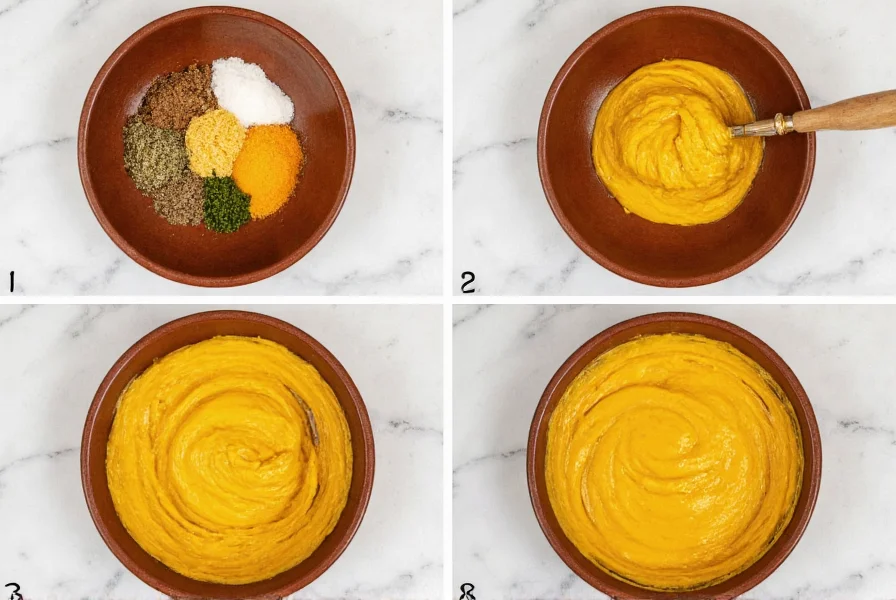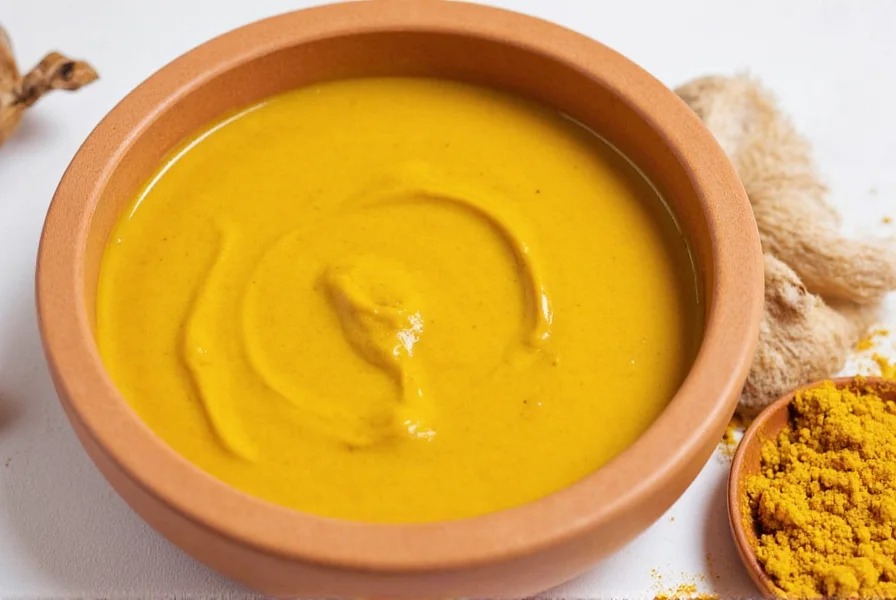The simplest effective turmeric mask recipe combines 1 teaspoon of turmeric powder, 2 teaspoons of raw honey, and 1 teaspoon of plain yogurt. Mix into a smooth paste, apply to clean skin for 10-15 minutes, then rinse with warm water. This basic formulation provides anti-inflammatory benefits, brightens complexion, and hydrates skin without causing significant staining when used properly.
Creating an effective turmeric face mask at home combines ancient Ayurvedic wisdom with modern skincare science. Turmeric's active compound, curcumin, offers potent anti-inflammatory and antioxidant properties that benefit various skin conditions. When properly formulated, a homemade turmeric face mask recipe can address multiple skincare concerns without the harsh chemicals found in many commercial products.
Why Turmeric Works for Skincare
Scientific research supports turmeric's effectiveness in skincare. A 2016 review published in Phytotherapy Research confirmed curcumin's ability to reduce inflammation and combat oxidative stress—key factors in acne, eczema, and premature aging. Unlike many natural turmeric skincare recipes that circulate online, effective formulations balance turmeric's potency with complementary ingredients that enhance absorption and minimize potential staining.
Essential Ingredients and Their Functions
| Ingredient | Function | Scientific Basis |
|---|---|---|
| Turmeric powder (1 tsp) | Anti-inflammatory, antioxidant | Curcumin inhibits inflammatory enzymes (COX-2, LOX) |
| Raw honey (2 tsp) | Antibacterial, humectant | Natural hydrogen peroxide and low pH combat acne bacteria |
| Plain yogurt (1 tsp) | Exfoliating, soothing | Lactic acid gently exfoliates while probiotics support skin barrier |
| Carrier oil (½ tsp) | Enhances absorption | Curcumin is fat-soluble; oils increase bioavailability |
Step-by-Step Turmeric Mask Preparation
Follow this precise method for a how to make turmeric mask for glowing skin that delivers results without the mess:
- Combine 1 teaspoon turmeric powder with 2 teaspoons raw honey in a non-metal bowl
- Add 1 teaspoon plain yogurt and ½ teaspoon carrier oil (jojoba or almond)
- Mix thoroughly until smooth paste forms (should resemble mustard in consistency)
- Apply immediately to clean, damp face using fingertips or brush
- Leave on for 10-15 minutes (never exceed 20 minutes)
- Rinse with lukewarm water using gentle circular motions
- Follow with moisturizer to lock in benefits

Turmeric Mask Variations for Specific Skin Concerns
Tailor your best turmeric mask for acne or other concerns with these evidence-based modifications:
For Acne-Prone Skin
Replace yogurt with 1 teaspoon aloe vera gel and add 3 drops tea tree oil. The aloe reduces irritation while tea tree provides additional antimicrobial action. Use this turmeric and honey face mask benefits formulation 1-2 times weekly—more frequent use may cause dryness.
For Hyperpigmentation
Add ½ teaspoon lemon juice (freshly squeezed) to the basic recipe. The citric acid enhances turmeric's brightening effects, but limit use to once weekly and always follow with SPF 30+ the next day due to photosensitivity.
For Sensitive Skin
Reduce turmeric to ½ teaspoon and increase yogurt to 2 teaspoons. Add 1 teaspoon oat flour for extra soothing properties. This gentle turmeric mask for dark spots alternative minimizes potential irritation while maintaining benefits.
Preventing and Removing Staining
One of the most searched concerns is how to prevent turmeric mask from staining skin. Follow these evidence-based methods:
- Always mix turmeric with wet ingredients first before adding to other components
- Apply petroleum jelly along hairline and eyebrows as a barrier
- Rinse with oil (coconut or olive) before water to break down pigments
- Use immediately after preparation—don't let mixture sit
- For persistent stains, make a paste of baking soda and water and gently rub
Usage Frequency and Expected Results
Understanding how often to use turmeric face mask is crucial for optimal results. Dermatologists recommend:
- Normal skin: 2-3 times weekly
- Oily/acne-prone: 2 times weekly
- Dry/sensitive: Once weekly
- Mature skin: 2 times weekly with added hydrating ingredients
Visible improvements typically appear within 4-6 weeks of consistent use. The first noticeable changes are reduced redness and more even skin tone. For significant improvement in hyperpigmentation or acne scarring, continue the DIY golden milk face mask routine for 8-12 weeks while protecting skin from sun exposure.
Safety Considerations and Patch Testing
Before full-face application, conduct a patch test:
- Mix a small amount of your turmeric mask recipe
- Apply behind ear or on inner forearm
- Wait 24 hours for any reaction
- Proceed only if no redness, itching, or swelling occurs
Avoid turmeric masks if you have known sensitivity to curcumin or are taking blood-thinning medications. Pregnant women should consult their healthcare provider before use, as high concentrations of turmeric may affect hormone levels.
Storage and Fresh Preparation Tips
Turmeric masks work best when freshly prepared due to curcumin's instability. However, if you must store:
- Prepare in small batches for single use
- If storing, use airtight glass container in refrigerator
- Maximum storage: 48 hours (discard if color changes)
- Never freeze turmeric mask mixtures
- Always check for spoilage before each use
Frequently Asked Questions
Can turmeric masks permanently stain skin yellow?
No, turmeric does not cause permanent staining. Any yellow tint typically fades within 1-2 hours with proper rinsing techniques. To prevent temporary staining, apply petroleum jelly along hairline before application and rinse first with oil before using water. Persistent stains can be removed with a gentle baking soda paste.
How long before I see results from using a turmeric mask?
Most users notice reduced inflammation and brighter complexion within 2-4 weeks of consistent use (1-3 times weekly). Significant improvements in hyperpigmentation or acne scarring typically require 8-12 weeks of regular application. For best results, combine with daily sunscreen as turmeric can increase photosensitivity.
Is it safe to leave a turmeric mask on overnight?
No, leaving turmeric masks on overnight is not recommended. The maximum safe duration is 15-20 minutes. Extended contact increases staining risk and may cause irritation, especially for sensitive skin types. Turmeric's active compounds are absorbed sufficiently within the recommended time frame for optimal benefits without adverse effects.
Can I use turmeric mask if I have rosacea?
Turmeric masks can benefit mild rosacea due to anti-inflammatory properties, but require caution. Use a modified recipe with only ½ teaspoon turmeric, 2 teaspoons plain yogurt, and 1 teaspoon aloe vera. Apply for no more than 10 minutes once weekly. Discontinue if you experience increased redness or burning sensation. Consult a dermatologist before use if you have moderate to severe rosacea.











 浙公网安备
33010002000092号
浙公网安备
33010002000092号 浙B2-20120091-4
浙B2-20120091-4